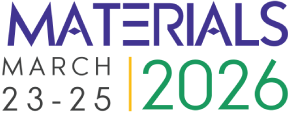Title : Development of lignin-PVP micro- and nanostructures by electrospinning and their thickening capacity in oil media
Abstract:
Developing oleogelators and oil thickeners from natural polymers with adequate properties is a challenge today. This work explores the ability of the different micro- nano-architectures based on low-sulfonate lignin (LSL)/polyvinylpyrrolidone (PVP) to structure castor oil. LSL and PVP were dissolved in DMF and micro- nano-structures were generated from the solution by electrospinning. PVP acted as a cospinning polymer in the process to improve the spinnability of LSL. The LSL: PVP ratio was varied in order to obtain different architectures at different concentrations (8-15 wt.%). Physico-chemical properties and rheological behaviour of the polymer solutions were assessed to explain the electrospinnability for fiber formation. The morphology of electrospun nanostructures was mainly dependent on the rheological properties of the solution. Electrosprayed nanoparticles or micro-sized particles connected by thin filaments were obtained from solutions with low LSL: PVP concentrations and/or high LSL: PVP ratios, whereas beaded nanofibers or bead-free nanofiber were produced by increasing concentration and/or decreasing LSL: PVP ratio, as a consequence of enhanced extensional viscoelastic properties and non-Newtonian characteristics. Electrospun LSL: PVP nanofibers were able to form oleogels simply by dispersing them into castor oil at concentrations between 10 and 30 wt.%. The rheological properties of the oleogels may be tailored by modifying the LSL: PVP ratio and concentration of nanofibers.
In summary, electrospinning of lignin/PVP solutions can be proposed as a simple and effective method to produce nanofibers for oil structuring. These findings may find diverse application in fields like food techonology and lubricant industry, as advanced functional materials for diverse.



